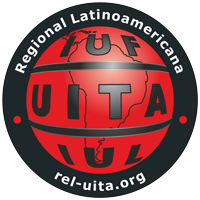“We worked together with the national government and the various chambers to prepare a sanitary protocol for the industry, which most meatpacking plants are complying with.
We have workers who have tested positive for COVID-19, and while the numbers are not alarming, in the country’s current health situation, it is cause for concern. Cases are expected to peak in July and that worries us.
In Argentina, the meat sector continues to work normally, complying with all the sanitary protocols in force, with the Federation monitoring compliance in every plant, demanding that companies in the sector do their part to guarantee the health and safety of workers.
In the facilities where COVID-19 cases were detected, the corresponding isolation was imposed, and care was also taken to ensure that workers in the at-risk group were sent home to quarantine with full pay.
These workers are still receiving their full wages, and no companies are failing to comply with this measure.
It should be noted that the few cases of infection detected are concentrated in the province Buenos Aires and in the capital, and there are no positive cases in other provinces.
Here the mandatory lockdown decreed by the government is still in place. We hope this will ends soon and in the best possible way.
Unfortunately, the issue of the pandemic has become greatly politicized and we have been facing some challenges because ours is an industry considered essential.
This is what we are explaining at each meatpacking plant: as long as all the sanitary protocols are followed, we have to work, because we have a commitment to society.
In this sense, we have been negotiating with municipal and provincial governments to be allowed to visit the plants and for them themselves, from their position in the government, to perform their inspection duties in the meatpacking plants.
Overall, the situation is stable. Safety measures are being applied, workers in the at-risk group are being paid, and here the large transnational groups, such as JBS, Minerva, and Marfrig (of Brazilian origin), are following the protocols because our unions are very vigilant and we’re making sure they comply.
If these transnational corporations are going to profit form our country, they must obey our laws and regulations, and they need to respect our workers and the Federation.”

